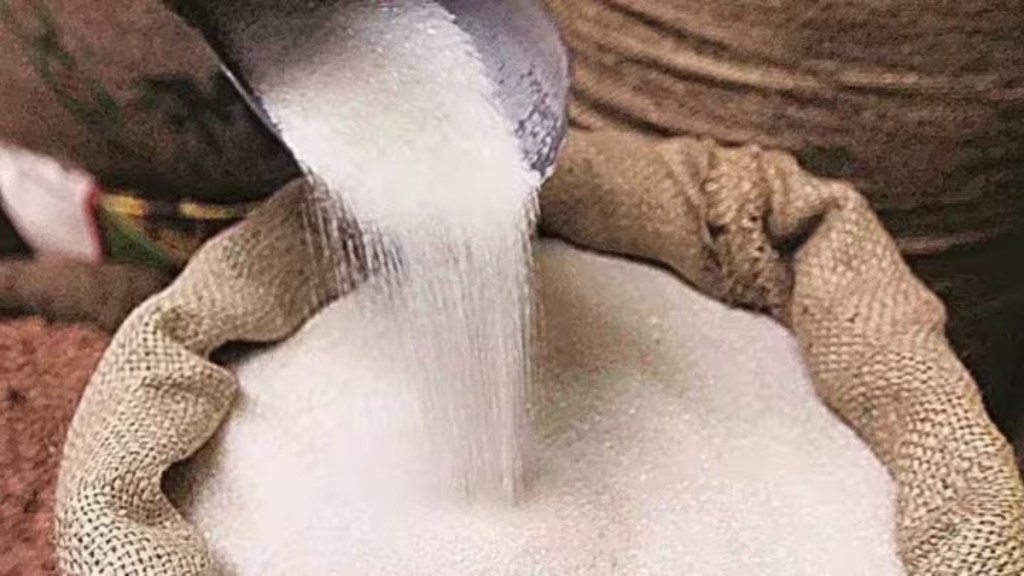Let’s face it. We all love sugar; it tastes phenomenally good, whether in desserts or beverages, and even gives us a rush, making us lose control and eat more than we planned. However, on the downside, it instantly shows, and in the most unflattering way, as extra kilos on our bodies.
In fact, weight gain isn’t the only bad attribute of refined sugar. Consuming too much of it can increase one’s risk of type-2 diabetes, heart disease, cancers and even depression, studies have shown. It may even accelerate skin ageing. But, honestly speaking, it is the flab around the belly that typically draws attention, making some of us go easy on that sugar in the morning tea and coffee.
In a bid to avoid gaining those unnecessary kilos while satiating their sweet tooth, many people switch to other sweeteners such as jaggery, honey, raw and brown sugar. It seems they have found the solution, or have they?
The desi gud
Jaggery, or gud, is seen as a traditional Indian sweetener; hence, it is almost intrinsic to many of the dishes. Just think of a nice piping bowl of bajre ki khichdi, which many enjoy with a piece of jaggery; or the gud til ladoo, which makes for exactly the right dessert one needs in the winter. The sweetener is prepared after boiling coconut juice.
However, opposed to what some may believe, “its total calorie content is comparable to table sugar,” says Edwina Raj, head of services—clinical nutrition & dietetics, Aster CMI Hospital, Bengaluru. Hence, if looking to shed a few kilos, jaggery might not be doing you any favours. While 100 gm of sugar has 385 calories, the same amount of gud has 375, as per Apollo Pharmacy.
“If we look at the glycemic index of jaggery and sugar, both have a similar glycemic index, which doesn’t make jaggery a healthier substitute for table sugar. However, the fact that jaggery contains additional minerals like potassium and vitamins that sugar does not (because of processing) is one of the main distinctions between the two. However, since both have a similar glycemic index, it is not recommended to be added to your diet if you are looking for weight loss,” says Vedika Premani, clinical dietician, Sir HN Reliance Foundation Hospital, Mumbai.
Honey for health
“Bees naturally make honey, which is becoming more and more popular as a healthier substitute for sugar,” says Raj.
In fact, if consumed properly, it can even be beneficial for weight loss, says Sharma. “It helps reduce cravings for other sweets and provides many vitamins, minerals, and antioxidants. Additionally, honey’s nutrients boost the body’s capacity to burn fat by accelerating metabolism.”
However, it is to be noted that the majority of the health benefits are unique to unpasteurised or raw honey. “It has antimicrobial, anti-inflammatory, and antioxidant properties, which help relieve common cough and cold,” says Premani.
If looking to include honey in your diet, here are some of the ways to do it: Substitute it for refined sugar in coffee, tea, cereal, and other foods. Add it to yoghurt or oatmeal for a healthy and satisfying breakfast. Drinking honey water before meals can help reduce appetite and cravings. Adding honey to marinades and sauces can sweeten the food without adding processed sugar. Finally, they can use honey as a natural sweetener in baked goods and other desserts, the experts say.
Having said that, honey is still a form of sugar, hence, should be consumed
in moderation.
The non-white sugars
Many people, who don’t develop a taste for gud, or honey, switch to raw or brown sugar, as the so-called healthier alternatives. However, is their marketing as a healthy one doing you any favours?
“White and brown sugar are fairly similar because they come from the same crops – either sugarcane or sugar beet plants. Brown sugar is actually a blend of white sugar and molasses, a kind of syrup made from sugar. Its deeper colour and marginally higher nutritional value are due to molasses. The molasses in brown sugar provide a source of calcium, iron and potassium. Having said that, brown sugar is not an excellent source of any vitamins or minerals due to the negligible levels of these minerals in it,” says Premani. Most importantly, both have a similar glycemic index, which is the measure of how quickly the food makes your blood sugar level spike. While 100 gm of sugar has 385 calories, the brown one contains 380; not making it as good for weight loss.
Among them all, raw sugar is the healthiest as “it is less processed and retains more of its natural nutrients. Also, raw sugar undergoes minimal processing, while brown sugar is refined and has molasses added back in. For those trying to lose weight, raw sugar is a slightly better choice, but it is important to consume both sugars in moderation,” says Deepali Sharma, clinical nutritionist at CK Birla Hospital, Delhi.
What about coconut sugar?
A white sugar alternative that is increasingly gaining traction is coconut sugar. Made from the sap of coconut palm tree after minimal refining, it is seen as retaining nutrients and a healthier alternative that could help with weight loss. However, the experts aren’t on the same page. “Although it has a small amount of trace minerals, its calorie content and weight-loss potential are similar to those of table sugar,” says Raj.
Sharma goes a step further and attributes the buzz around it to the “marketing claims as a healthier alternative to regular sugar.” The “truth”, however, is that “coconut sugar is just as high in calories and sugar and offers very little in terms of nutritional benefits. In fact, a person would have to eat a ridiculous amount of coconut sugar to satisfy their daily needs for the minerals and antioxidants that it contains. And even then, the high sugar content would outweigh any potential benefits. So, if a person is looking for a healthier way to sweeten their food and drinks, it is best to avoid coconut sugar. Instead, opt for natural sweeteners like honey, maple syrup or stevia, which contain fewer calories and sugar, and offer more nutritional benefits,” she says.
A sweet poison
While almost every sweetener should be a no-go zone when the intent is to lose weight, nothing can be as harmful as the high-fructose corn syrup (HFCS), added to a variety of foods including candies, packaged sweets, soda, juices, sauces, ice cream, jams and breads.
“It is a sweet poison that is lurking in food. It is a man-made sweetener that is high in calories and carbohydrates, and it contains no fat, protein, or micronutrients in significant amounts. HFCS is linked to a number of chronic diseases, including obesity, type 2 diabetes, heart disease, fatty liver disease, and dyslipidemia.
A person who is concerned about their health should try their best to avoid HFCS. They can do this by reading food labels carefully and choosing products that do not contain HFCS. Instead, opt for natural sweeteners,” says Sharma. Despite it being detrimental to health, its widespread use is largely attributed to low cost and longer shelf life.
What to choose?
While experts recommend sweeteners such as stevia, monk fruit extract, and honey, no food causes harm if consumed in moderation. “I support consuming sugar in moderation, no matter what kind it is,” says Raj.
However, it is always better to steer clear of added sugar, as they can contribute to “weight gain, chronic diseases, and other health problems. But that doesn’t mean a person has to eliminate sugar from their diet,” says Sharma. “Natural sugars found in fruits, milk and vegetables are perfectly healthy and can be part of a balanced diet. The key is to limit added sugars, which are found in many processed foods and drinks,” she adds.
By just following a few tips, one can enjoy the much-loved sweetness, without compromising on health. “Choose products with less added sugar, limit sugary drinks, and make meals and snacks so they can control the amount of sugar added. Enjoy sugar in moderation and savour the sweet balance,” the experts say.







